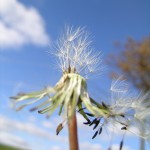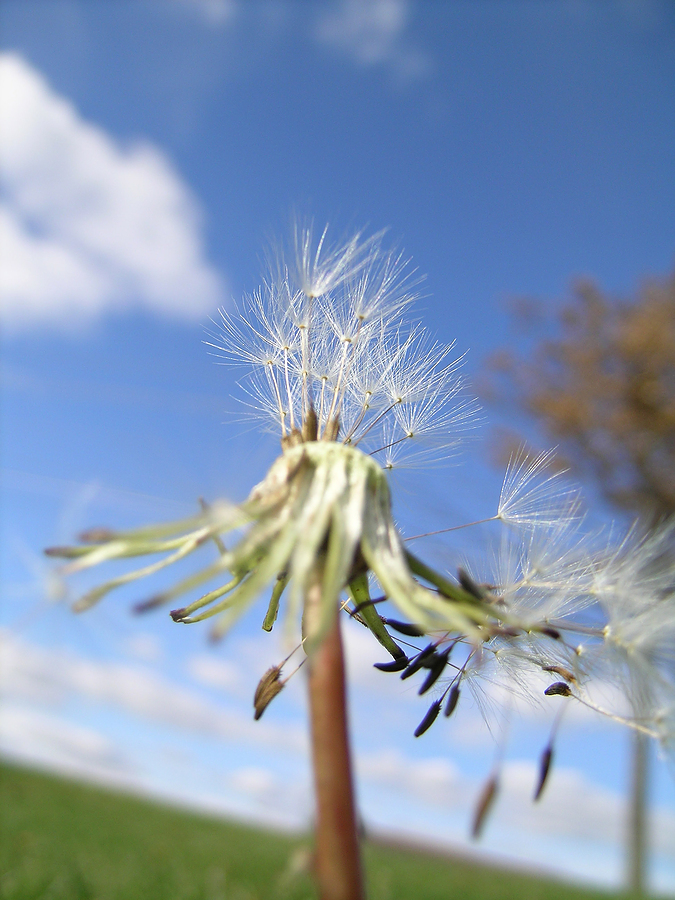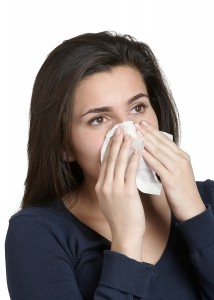Have you been struggling to win your battle against hay fever this summer? Well, you’re not alone. This year, experts are forecasting a particularly rough hay fever season thanks to the combination of warm, dry weather, strong breezes, and air pollution. More than five million Canadians suffer from seasonal allergic rhinitis, also known as hay fever. Statistics show allergic rhinitis is estimated to affect approximately 60 million people in the United States, and its prevalence is increasing.
While over the counter drugs may help give short term relief, more of us are looking to explore a “natural” long term solution.
“Treatments such as over-the-counter anti-histamines simply provide a temporary solution and people become dependent on using them throughout their lives because they do not treat the true cause of their allergies and can lead to other health problems in the future,” says Dr. Amita Sachdev, a naturopathic doctor practicing in Ontario.
She adds that hay fever is simply the body reacting to something in the environment time and time again.
“Hay fever is largely caused by reactions to pollen from Ambrosia which is a plant/flower in the compositae or asteraceae family. This may lead the person to react to other plants in the same family such as echinacea, tarragon, and calendula (marigold) and they should, therefore, avoid their ingestion. “If you react to an inhaled allergen, the part of the immune system that gets activated is IGE which causes an immediate hypersensitivity response. This leads to the release of histamine and symptoms can include: increased mucous production, itching/watering eyes, sneezing, cough, sore throat, and nasal congestion. More severe symptoms include: difficulty breathing or aggravation of pre-existing asthma especially if you have other allergies.
She adds there may other underlying causes to the problem that the person may be unaware that a naturopathic doctor can help uncover and treat.
“People experience allergic symptoms because they are hypersensitive to something in their environment. So we look at other factors that may be causing this susceptibility. We may need to explore their diet to uncover food allergies and address other ailments they may have. A common association is to determine if a person has digestive problems, since 80% of the immune system’s cells are in the gut. When we’re considering food allergies as a possible cause, we can test the patient’s blood to get a detailed analysis and treatment can be very specific and effective.”
While many South Asians living outside of India suffer frequently from hay fever, our parents and South Asians living in India don’t have the same experience.
“In India, most people do not know what it means to have allergies. Some people with asthma are aware that pollution contributes, but they are unable to change their environment and are therefore, unaware of alternative treatments. Additionally, most people in India do not have food allergies the way we do in North America, but when people from various countries come to North America, they often develop allergies, as do their children.”
 So why the difference? Dr. Sachdev says it’s not just genetics.
So why the difference? Dr. Sachdev says it’s not just genetics.
“The big questions we face is that why are we so unhealthy as a generation compared to our parents. We came from a generation of mothers that didn’t breastfeed. By the 70s it wasn’t ‘cool’ to breastfeed and many mothers turned to the convenience and perceived greater benefit of formula. Many studies have now shown the benefit of breast milk on the immune system and more women are choosing to breastfed their babies once again. On another note, if either parent had eczema, allergies, or asthma (a classic triad) the child has a greater likelihood of developing any or all of these conditions. Breastfeeding can certainly reduce this risk, however, if the mother’s nutritional status is compromised, she will not be able to pass on all the necessary nutrients her baby needs. So moms really need to take care of themselves, and ensure they’re getting as many nutrients as possible, with which a naturopathic doctor can help.”
Dr. Sachdev adds there are things we as mothers can do to allow our immune system to work properly:
- Avoiding refined sugar from all sources (except from fresh fruit) such as soda, candy, chocolate, pastries, cake, cookies, ice cream, pudding, laddoos, you get the idea. A teaspoon of refined sugar disrupts the normal functioning of the immune system for up to 24 hours. Now imagine having a little treat everyday!
- Take beneficial supplements that include high doses of vitamin C and quercetin which help to stabilize mast cells that release histamine. Vitamin C may also be administered intravenously by your naturopathic doctor to obtain higher blood concentrations without the diarrhea often associated with high oral doses.
- For adults, avoiding mucous forming foods can be very effective such as dairy, and citrus. Other foods to avoid may include: bananas, mangos, melons, and mushrooms to name a few.
Sublingual immunotherapy, also known as SLIT, is a new, natural and effective way of treating allergies that eliminates the need for weekly injections from your doctor. Dr. Amita Sachdev ND first performs skin testing and then recommends specific treatments. Treatments generally run seasonally from spring to fall, depending on the patients needs, for a few years until all allergic symptoms are resolved. Dr. Sachdev says patients are thoroughly assessed and given comprehensive protocols with regular follow-ups to evaluate and alter treatments as needed.
**This article is for informational purposes only and is not a substitute of the advice of a family physician. Always consult with your family doctor prior to starting any new treatments.
Amita Sachdev graduated from The University of Toronto with a Bachelor of Science in Nursing and worked as a Registered Nurse in hospitals, public health, and the community with acutely ill and chronically ill patients of all ages. Upon graduating from The Canadian College of Naturopathic Medicine (CCNM), she completed an additional two- year residency at Canada’s largest teaching clinic, The Robert Schad Naturopathic Clinic (RSNC), and continues to serve as a faculty member and advisor at CCNM while in private practice at The Centre for Health and Rehabilitation in Vaughan, Ontario. She can be reached at asachdevnd@gmail.com.
©masalamommas and masalamommas.com, 2016-2017. Unauthorized use and/or duplication of this material without express and written permission from this site’s author and/or owner is strictly prohibited. Links may be used, provided that full and clear credit is given to masalamommas.com and Masalamommas online magazine with appropriate and specific direction to the original content.







There are no comments
Add yours